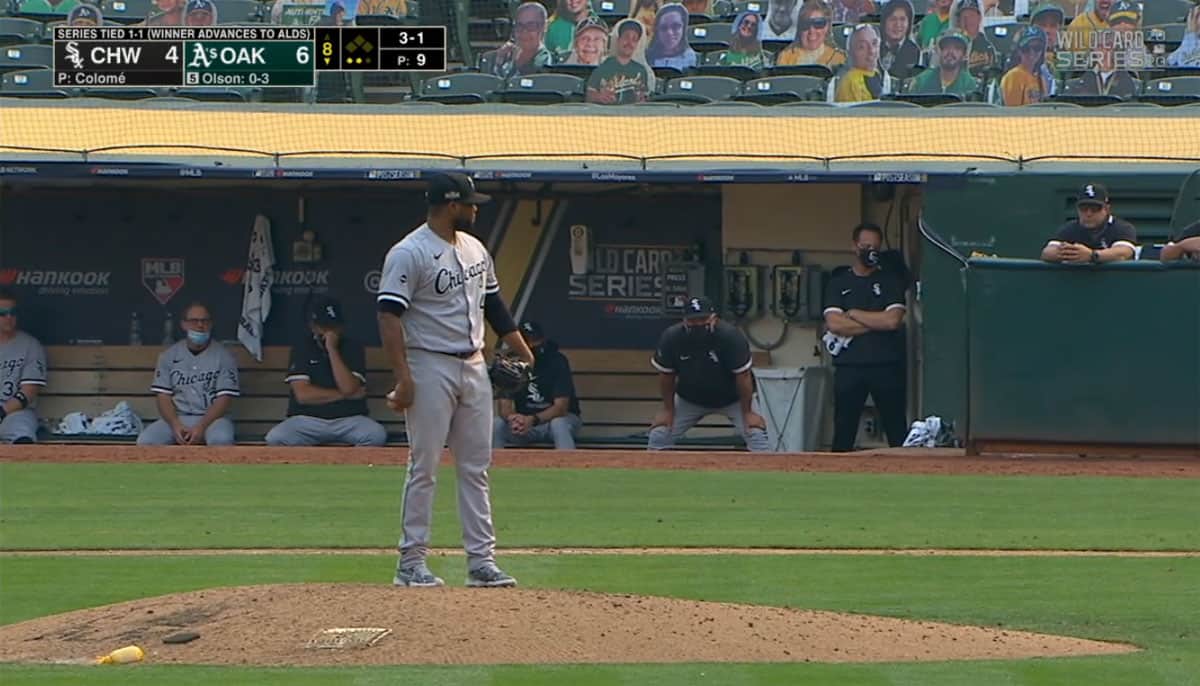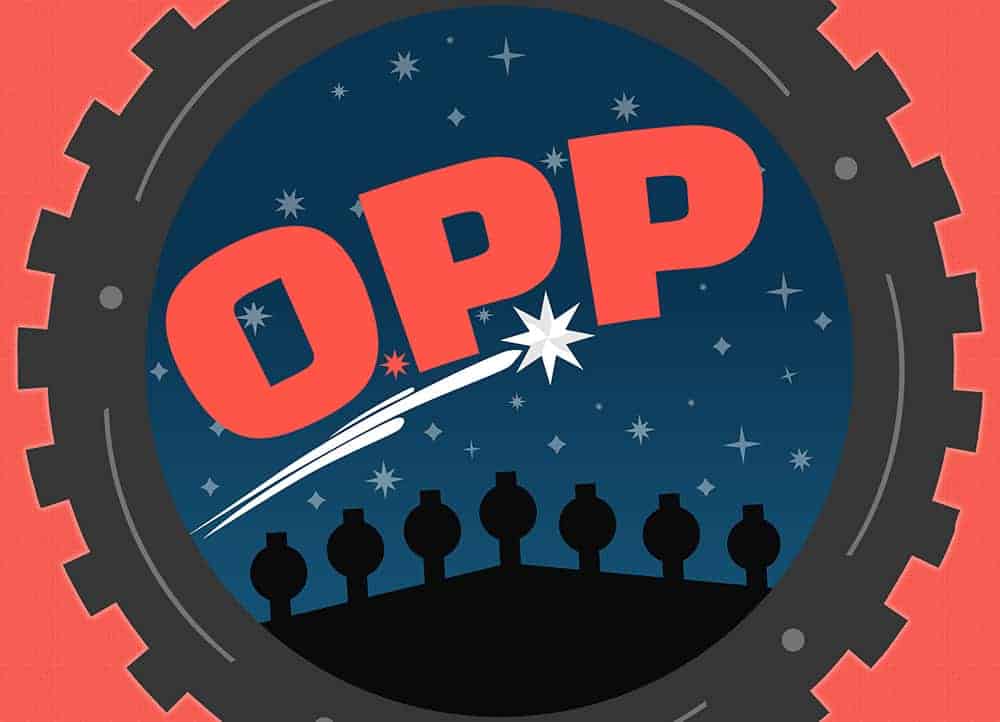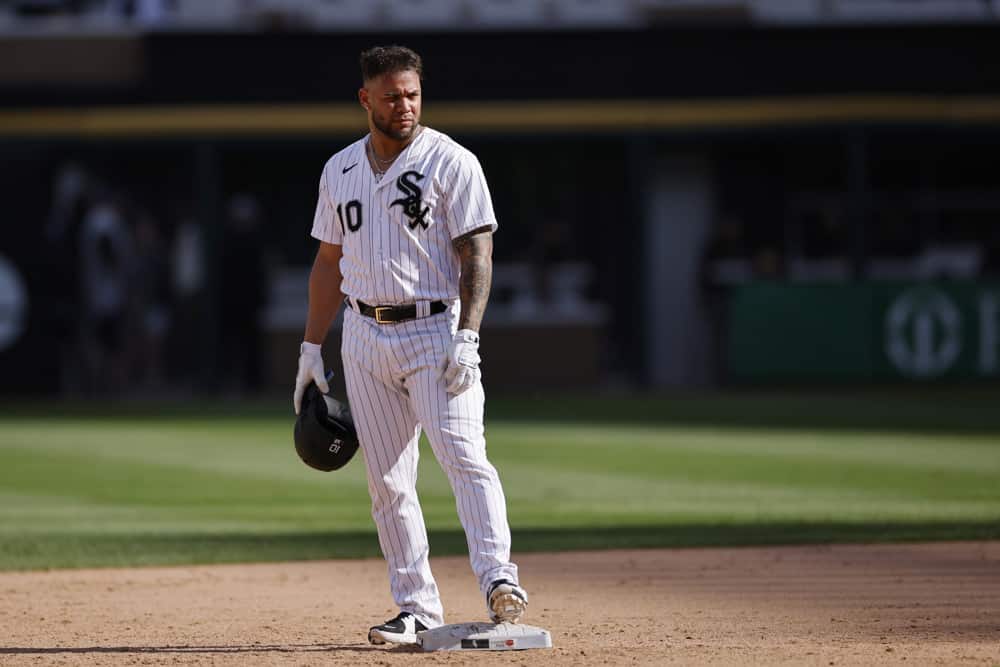The problem with taking on a job managing a rebuilding club is that whoever takes the job is not expected to win, but he acquires all the baggage from the losing. By the time the roster improves, a lot of people have grown tired of the face, voice and brain that steered them through the worst of it.
Rick Renteria appeared to be the rare survivor. While most rebuilding managers get the ax in the third year, Renteria finished a fourth. And not only did he complete a fourth, but he ended a couple of ugly streaks in the process. The White Sox recorded their first winning season since 2012. They made the postseason for the first time since 2008. Perhaps they benefited from the 60-game season, but they could only play the schedule presented to them.
The White Sox have stuck with worse managers for years past their sell-by date, so it shocked me that the White Sox decided to ditch Renteria just as things were starting to get good for everybody involved.
Sure, the last two-plus weeks highlighted some cracks. The ugliness of Game 3 didn't bother me as much as the idea that he wouldn't pursue openers, tandem pitchers or other alternate-starter strategies in games with much lower stakes. It might've been easy to chalk up the bullpen's unraveling after Garrett Crochet's injury as bad luck, rather than seat-of-the-pants panicking, if he could point to a number of successes working around the absence of a credible starter. Instead, he looked like a guy who hadn't practiced the piece much before the recital.
More than that isolated event, I thought he and the Sox lost their composure under the stress of the pennant race and overexposure to Angel Hernandez's umpiring crew. Things like the poor timing for Carlos Rodón's return, the three ejections over a five-game stretch and Yolmer Sánchez's pitching appearance all suggested a dugout that was having a hard time gathering itself.
If Renteria were in his first year of managing the team, he'd probably get a chance to try it again. A lot went right for him in 2020, and the White Sox as a result. His team beat the regular-season projections, in part because they followed pandemic protocols during unprecedented playing conditions. The highly paid veterans met expectations, and numerous young players exceeded them. One person's "He overplayed Nomar Mazara" is another person's "He put Adam Engel in a position to succeed for the first time in his career."
But with three years of losing already on Renteria's record, the loud voices were not all that charitable. Familiarity breeds contempt, even if it's the rosters that were designed to draw your hatred.
For instance, I thought one of Renteria's greatest evolutions as a manager was toning down his (over)policing of hustle without a drop-off in team effort levels. Somehow, that got used against him. Ken Rosenthal said "some White Sox veterans felt Renteria needed to hold players more accountable," Along the same lines, Steve Stone told Dan Bernstein that the Sox needed "a manager that pays more attention to detail," which is exactly how Robin Ventura was advertised during the "shadowball" days. That didn't turn out to be lasting or meaningful.
(Stone also said the White Sox needed to "learn how to win when you're not hitting home runs" during a postseason where the team that hits more homers is 23-1.)
* * * * * * * * *
Of the things Stone told Bernstein, this is what rings truest:
The baggage creates a hazard in sticking with Renteria when there are a couple of proven candidates on the market, one of whom could end up with a direct competitor. If the White Sox took a step back in 2021 regardless of Renteria's involvement, they'd take hits from all directions, most notably their own network's employees, and not just Stone. During the season's final weeks, NBC Sports Chicago basically touted their postgame show by telling fans how Ozzie Guillen was going to dump on the guy who had his old job, and also Frank Thomas on days he was available to be angry. What Hahn calls "insular" is often closer to incestuous, and while Renteria's lack of introspection irked those listening to his self-assessments, the last thing he needed was another guy publicly kicking him.
During the media conference, Hahn said that Renteria's managing over his final three weeks on the job didn't determine the outcome. Hahn failed to provide other concrete reasons, which leads one to think that the three weeks are the only possible reason Renteria was no longer their guy. Perhaps Hahn is drawing a distinction between a reactive decision and a proactive decision. The White Sox didn't fire Renteria because of his performance down the stretch. Rather, they fired him because they couldn't tolerate another collapse like that while knowing they could have hired somebody in whom they had more confidence.
I'm guessing Hahn just doesn't want to badmouth a guy who did well for them, but he'd have a precedent. Skip back to 2012, when expanded rosters and the pressure of a pennant race conspired to overwhelm Ventura in his first season. The White Sox stuck with Ventura to rapidly diminishing returns, while the Cleveland Indians hired Terry Francona the following winter to spectacular results.
Switching to an A.J. Hinch or an Alex Cora at this juncture doesn't guarantee Francona-like success. Look at Philadelphia and Anaheim, neither of which made the postseason even after switching to Joe Girardi and Joe Maddon. Nobody faulted either team for being proactive in attempting to upgrade the managing position despite the standings, just like the White Sox were smart to sign Yasmani Grandal even with James McCann around.
The cautionary tale is that while Girardi and Maddon were spared from the consequences of their disappointing debuts, the guys who hired them both got the ax. The Phillies demoted Matt Klentak, and the Angels fired Billy Eppler. It's hard to imagine Jerry Reinsdorf booting Hahn and Kenny Williams from their positions should Renteria's successor stumble out of the gate, but if the Bulls are indeed inspiring the White Sox to find some freshness, I suppose you can't rule out a search for an Arturas Karnisovas of their own.
* * * * * * * * *
For the time being, it absolutely sucks for Renteria, who for the second time was good enough for the job until he suddenly wasn't. He couldn't hold off the forces that conspire against rebuilding managers, and is now part of an unfortunate pattern ...
... and while the White Sox's track record with managerial hires stands out, it would contribute to baseball's big-picture problem of diversity in leadership if they dumped a manager who paid his dues, rose through the ranks and endured one rebuilding roster after another for a guy like Hinch, who is fresh off a suspension for his role in one of baseball's worst scandals.
At least with Hinch, you could make the argument that he's a pro at the top of his game. Another name Bob Nightengale attached to the White Sox offers no such angle.
The Chicago White stunned the baseball industry Monday morning when they announced the firing of manager Rick Renteria.
They could shock the world with their next hire.
The White Sox plan to reach out to one of the greatest managers in baseball history, who managed his last game in 2011, who was inducted into the Hall of Fame six years ago, and who is 76 years old.
The name: Tony La Russa.
I'm guessing this is the product of Reinsdorf's strange compulsion to flatter friends through the only reporter he talks to (remember Nightengale strenuously arguing for reasons why the White Sox might retain Ventura when they'd already decided on the end of his tenure?), but it's not a thread that should be pulled further.
That the White Sox fired Don Cooper at the same time as Renteria avoids making Renteria the one and only fall guy, but it's a little unfair that the next manager will get to name his own pitching coach, which is a privilege Renteria was never afforded.
Renteria ultimately did a respectable job with what he was given, and he helped the White Sox far more than he hurt them over the last four years. He had his weaknesses, but he also deserved a shot to address those weaknesses in a standard season, because history is littered with managers who didn't nail it the first time. Hinch is one of them. La Russa is another.
Renteria won't get that second opportunity with the White Sox, and now we'll get to see what he's missing. If it's because the White Sox see themselves as major players for the foreseeable future, then maybe everybody remaining will benefit from a manager who is on the other side of the October learning curve, as much as it sucks for the guy they bailed on. If the White Sox are upgrading their manager because they don't intend to supplement the roster in a meaningful way due to COVID capital crunches, I wouldn't expect the next skipper to make up the difference.





